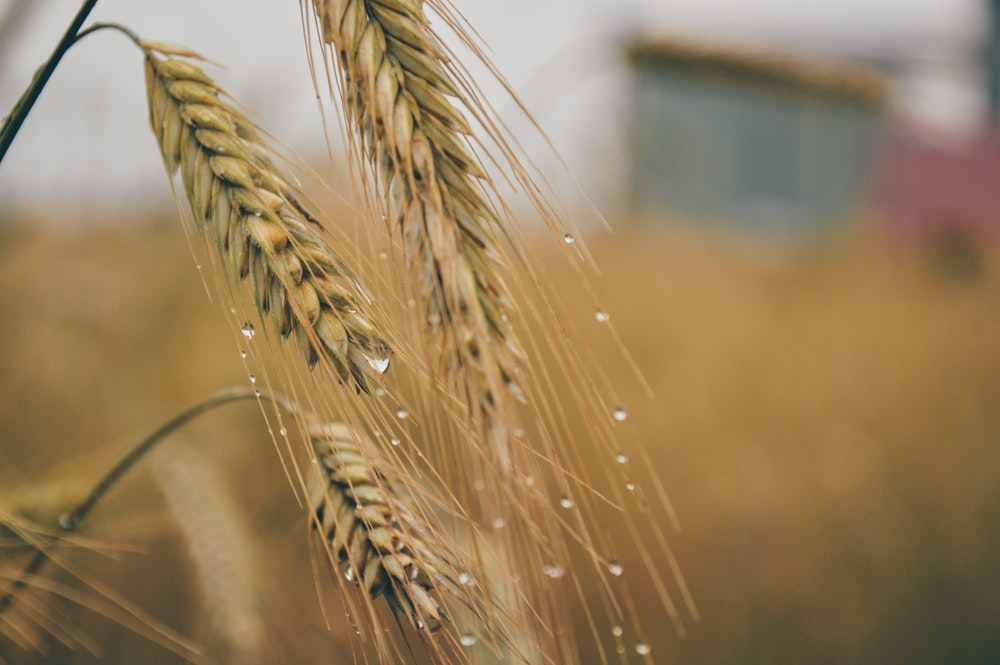What’s up with gluten and why are so many people allergic to it?
According to Dr. Tom O’Bryan, a leading expert on celiac disease and non-celiac gluten sensitivity, gluten is not necessarily bad for you. To explain a bit further, he states, “Gluten isn’t bad for you. Bad gluten is bad for you.” By this he means that the gluten encountered in corn, quinoa and rice are different than that found in wheat, barley and rye. Gluten, says O’Bryan, is an “umbrella term” for families of proteins, and only the latter three types are bad for humans.
In a recent interview, O’Bryan discussed points made by another authority on the subject, Dr. Alessio Fasano. Fasano, the Chair of Pediatric Gastroenterology at Harvard’s Mass General, put it simply that, “No human can digest gluten,” meaning specifically the kind found in the gluten family of proteins in wheat, barley and rye. Then, he elaborates, over a long period of time, spanning between decades and a lifetime depending on the individual, long-term gluten exposure to wheat, barley and rye can cause issues related to intestinal permeability. This permeability can develop into further problems and serious health conditions — such as leaky gut syndrome.
What’s the difference between gluten allergies and celiac disease?
To break things down further, gluten allergy symptoms vary widely and are similar to those found in celiac disease — but celiac disease is much more serious than gluten allergies. Gluten allergies, although they often cause discomfort, may not be as problematic as celiac disease and continued gluten consumption can sometimes be tolerated. Celiac disease causes the lining of the small intestine to become inflamed and eventually damaged by the consumption of gluten. Malnutrition and weight loss may result, as well as eventual internal organ damage, which can be life-threatening. According to WebMD, symptoms of upset stomach, bloating, abdominal pain, and diarrhea can indicate possible celiac disease. A doctor should be seen as soon as possible if a person experiences these symptoms after consuming gluten. The individual should not start a gluten-free diet before seeing the doctor in order to ensure accurate test results (a blood test and possibly an intestinal biopsy) to confirm the proper diagnosis.
What are the symptoms of gluten allergies?
Most common complaints of symptoms related to gluten allergies include poor digestion, gas, bloating and abdominal discomfort. Other symptoms may be absentmindedness, anemia, ADHD (in both children and adults), fatigue, headaches, constipation/diarrhea, insomnia, diverticulitis, irritability, mouth ulcers, osteoporosis, skin ailments, and upper respiratory tract issues. Complications which may arise from gluten allergies may stop if gluten is eliminated. Some have had success in treating symptoms of asthma, autism, and Crohn’s disease by lowering or eliminating gluten.
How common are gluten allergies?
With gluten allergies as common as 1 in 167 healthy children and 1 in 111 adults, it’s clear this is not at all an obscure ailment. Furthermore, when treatment is sought for stomach or gastrointestinal problems, doctors find that as many as 1 in 40 children and 1 in 30 adults examined is actually then diagnosed with a gluten allergy. Many symptoms overlap between simple gluten allergies and leaky gut syndrome, as well, so any prolonged symptoms as described above should be examined by a doctor ASAP.
How can someone find out for sure if they have a gluten allergy?
To test for a gluten allergy, aside from the above recommended tests conducted with a doctor’s supervision, one alternate method is the elimination diet. Essentially, the elimination diet excludes all forms of problematic gluten (anything containing wheat, barley or rye) from the diet for a month (or some even say two months) to see how the person feels.
What should someone do when they find out they have gluten allergies?
If you find you must eliminate or reduce gluten consumption, don’t fret. You’re by far not alone, and some have even gone to the trouble of compiling assorted menu options for you based on your preferred foods. One such site has broken down the options into easily scanned gluten-free categories: fruits/vegetables, meats, dairy, breads/snacks/cereals/pasta, prepared/frozen foods, and dry goods. Another alternative is to enter your diet search terms, like vegetarian and gluten-free, for example, into the fields as search criteria on the Foodgawker site, so you can pull up numerous recipes according to your specifications. Vegans can also find gluten-free recipes on assorted food blogs, like Vegan Richa‘s gluten-free section and the Minimalist Baker‘s and Connoisseurus Veg‘s gluten-free archives. Simple online searches yield additional sites offering guidance on gluten-free restaurants and stores offering gluten-free options.

